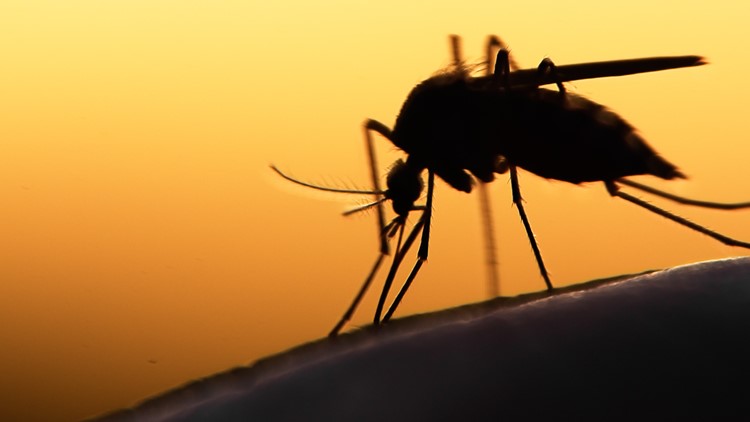MONROE, Mich. — The Monroe County Health Department (MCHD) is recommending residents take precautions and protect themselves from mosquito bites after West Nile virus was detected for the first time in the county.
The health department said the virus was detected in a dead wild mallard. There are no reported human cases of West Nile virus in Monroe County, but there is one reported human case of the virus in Michigan.
1 in 5 infected individuals develop symptoms such as headaches, body aches, joint pains, and in some cases in adults over 50 years and those who have weaker immune systems, neurological complications and death.
"It only takes one bite from an infected mosquito to cause severe illness," said Chris Westover, environmental health director for the Monroe County Health Department. "We encourage residents to take steps to prevent mosquito bites to the greatest extent possible"
As of Jul. 26, there have been 17 West Nile Virus-positive mosquito pools, 10 WNV-positive animals, and one human case of WNV reported in Michigan, according to the weekly Michigan Arbovirus Surveillance Report.
The MCHD shared some of the best ways to prevent mosquito-borne disease:
- Apply insect repellents that contain the active ingredient DEET or other EPA-approved products to exposed skin or clothing.
- Mosquitoes are most active from dusk to dawn. Wear light-colored, long-sleeved shirts and long pants when outdoors. Apply insect repellent to clothing to help prevent bites.
- Maintain window and door screening to help keep mosquitos outside.
- Empty water from mosquito breeding sites around the home. (buckets, kiddie pools, old tires etc.)
Residents are encouraged to report a recently deceased bird by calling the Environmental Health Division at 734-240-7900.
For more WNV information, click HERE.



